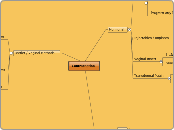Contraception
Other
Lactational Amenorrhea
1st 6 mo post-partum
Guidelines
Exclusively breastfeed
Remain amenorrheic
MOA
Inh. Dopamine
Prolactin
Depress GnRH
Emergency Contraception
IUD
Not good option for nulliparous women
RU-486 (Mifepistrone)
Not indicated in US
Antiprogestin
Plan B (Levonorgestrel)
Prevent implantation
Prevent ovulation
Combo pill (Estradiol & Norgestrel)
Nausea common
75% effective
Periodic Abstinence
Avg: 17 days of abstinence
Symptothermal
Cervical mucus & Basal body temperature
Cervical mucus
Abstain when cervical mucus sticky/moist
Rhythm or Calendar
Predict ovulation
Sterilization
Technical skill
Regret
Permanent
IUDs
Disad
risk of PID
No STI protection
Cost-effective long-term
Reversible, no delay in fertility
Barrier / Vaginal Methods
Spermicides / Foams
Yeast infxn
Nonoxynol-9
Condoms
Female
Cumbersome to use
Male
Diaphragms
DisAd
Toxic Shock
UTIs
Adv
Gonorrhea
Leave in for 6 h after sex
Requires prescription
Requires fitting
Hormonal
Transdermal Patch
Decreased efficacy in females >= 90 Kg
Vaginal Insert
Same as Combo-OCPs
3 wks on, 1 wk off
Injectables / Implants
Progestin-only
Implanon
3 years
Depo-Provera
3 mo.
Medroxyprogesterone acetate
OCPs
Progestin-only Minipill
Take at same time everyday
Irregular bleed
40% will ovulate
Combination
Most common reversible method
DVT/Stroke
Liver cancer









